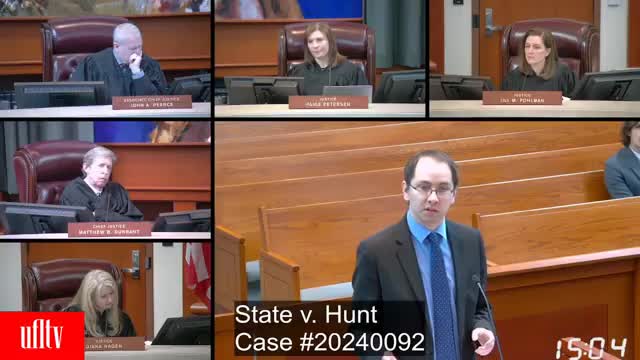Court Evaluates Jury Instruction Validity in Self Defense Case
July 20, 2025 | Utah Appellate Court Collection, Utah Family Law District Court Collection, Utah District Courts, Utah Judicial Branch, Utah
Thanks to Excel Chiropractic and Scribe from Workplace AI , all articles about Utah are free for you to enjoy throughout 2025!

This article was created by AI using a video recording of the meeting. It summarizes the key points discussed, but for full details and context, please refer to the video of the full meeting. Link to Full Meeting
The crux of the debate centered on the definitions of "perfect" and "imperfect" self-defense. Legal representatives argued that the existing jury instructions sufficiently covered the necessary elements of self-defense, asserting that the proposed instruction merely reiterated concepts already conveyed. One attorney emphasized, "The jury reading this instruction would have the same parts of perfect self-defense that it received in the actual instructions given to the jury," suggesting that the district court acted within its discretion by avoiding redundancy.
However, the defense contended that omitting the proposed instruction could lead to a misunderstanding of the law, potentially impacting the jury's decision-making process. They argued that the nuances of self-defense law, particularly regarding a defendant's reasonable belief in the necessity of lethal force, warranted clearer guidance.
The justices probed whether the district court's reasoning for denying the instruction was legally flawed, but it was concluded that even if the rationale was incorrect, the court could still affirm the decision based on alternative grounds. This highlights the court's ability to uphold a ruling even if the reasoning provided was not fully aligned with legal standards.
As the case unfolds, the implications of these jury instructions could significantly influence the outcome for the defendant, underscoring the critical nature of precise legal definitions in self-defense cases. The court's decision will likely set a precedent for how similar cases are handled in the future, particularly regarding the clarity of jury instructions in self-defense claims.
Converted from Utah Supreme Court State v. Hunt May 7, 2025 meeting on July 20, 2025
Link to Full Meeting
Comments
View full meeting
This article is based on a recent meeting—watch the full video and explore the complete transcript for deeper insights into the discussion.
View full meeting
